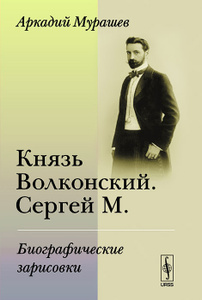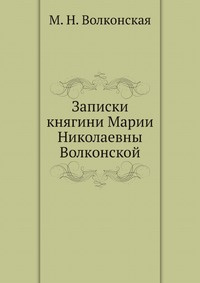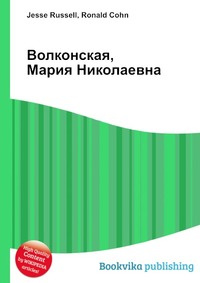Have you ever thought what it means to be a wife? Where can you learn this art? I would say, to be a wife means to just love. The story of one life and one love, those of Vera Muromtseva, serve to confirm that...
Due to her all-forgiving love, infinite devotion and self-sacrifice, the world got one of the greatest Russian writers. I am fully convinced that Ivan Bunin would not have become who he was without his Vera. Memoir writer Vasily Yanovsky wrote about Vera Bunina: ‘It was a Russian (‘saint’) woman, whose destiny was to unconditionally and selflessly follow her hero to Siberia, to mining camps, or to Monte Carlo and Stockholm, anywhere!.. She shared the fate of any poet, journalist or just any person she knew who got into trouble, she ran to help them through severe frost, slush and darkness…’
Her contemporaries described
her as a woman of tireless and inexhaustible tenderness, simple lifestyle, kindness,
modesty, but at the same time they mentioned queenliness and light that she
radiated. Marina Tsvetaeva wrote in one of her letters to Vera
Muromtseva-Bunina: ‘‘Vera Muromtseva’. ‘Bunin’s wife’. You see that these are
two different persons that don’t know each other.’ Why? Let’s work it out
together.
Vera Muromtseva
‘‘Vera Muromtseva’ is
my early childhood… I am writing to ‘Vera Muromtseva’, HOME…’, Marina Tsvetaeva
wrote in a letter to Vera Muromtseva. For Tsvetaeva, ‘Vera Muromtseva’ embodied
the life of Moscow nobility at the turn of the century.
She was born in 1881
to an old Moscow noble academic family. Her uncle, Sergey Muromtsev, was the chair
of the First State Duma. Vera got an excellent education. She studied
chemistry, spoke four languages, did translations and was very interested in
modern literature. Moreover, she was a rare beauty. Some mentioned her
resemblance to Madonna. Valentin Kataev described her appearance:
‘…at
the first time I saw … Vera Muromtseva, a young beautiful woman, not a lady from
the high society, but a woman: a tall, with a cameo-like face, smoothly-combed,
blue-eyed blonde with a topknot falling down her neck, who was dressed like a student, a Moscow soft
beauty from the intellectual academic community that has always seemed to me
even more unattainable than, for example, ‘Vestnik Evropy’ (‘Messenger of
Europe’), a fat magazine with a bricky cover and a name written in Slavic
ligature, published under the editorship of a professor with a meaningful, kind
of extremely scientific surname Ovsyaniko-Kulikovsky.’
Hard to believe that
a man can ignore such woman and not fall in love at first sight. However, in
1896 in Tsaritsino, where they first met, Ivan Bunin paid no attention to Vera
Muromtseva. Another woman had occupied his thoughts. But Vera memorized this encounter
‘on a beautiful day in June by a flowery meadow.’ She even remembered his face,
so ‘fresh and healthy-looking’. Their real first meeting that happened on
November 4, 1906 in the apartment of a young writer Boris Zaitsev was very
different. Hosts arranged a literary soirée, where Bunin was invited as a writer
(though at that time he was little known). And it was there when he finally noticed
a ‘quiet lady with eyes from Leonardo’s paintings.’
‘Having talked and laughed
in spades, they tumultuously left the dining room. I came up to the opposite
wall and stopped, thinking of going home.
Bunin appeared in
the doorway.
‘How did you get here?’
he asked.
I flamed up, but replied
quietly:
‘The same way as you
did.’
‘But who are you?’
‘A human being.’
‘What do you do?’
'Chemistry.'
‘What’s your
surname?’
'Muromtseva.'
‘Are you a relative of
general Muromtsev, a landlord in Predtechevo?’
‘Yes, he is my first
cousin once removed.’
‘I sometimes see him
at the Izmalkovo station.’
We talked about him
for a while. Then Bunin told me that last year he witnessed trashing in
Odessa.
‘Where can I see you
again?’
‘Only at my family’s
house. We receive guests on Saturdays. I am busy on all other days. Today is an
exception: everybody thinks I’m still in Petersburg…’
Vera’s parents were against
her relationship with Bunin, which is understood: their beloved daughter was
dating a still married writer whose lifestyle was quite free. Her mother was vigorously
opposed to Bunin, as well as all their friends and acquaintances in the
academic community. At that time, Vera Muromtseva was in the final year at the
university, and she had to pass the exams and write her graduation work. When
she asked a family friend to give her a graduation paper, he said: “No, I am
not giving you the paper, you have to choose either Bunin or the paper…”
So Vera began to
date Bunin secretly. “Once, when I came
to Bunin, he told me about his dearest wish – to visit the Holy Land.
‘It would
be wonderful to go together!’ he said. ‘I can
spend hours with you and never get bored, while I cannot stand listening to
others even for an hour.’
Soon after that Bunin
decided to completely change not only her life, but also her occupation: ‘I have an idea, you need to start translating, it would
make our life and journeys more enjoyable: each of us would have something to
do, we wouldn’t get bored and interfere with each other’s work…’
‘When
my friends and relatives told me that the decision to live with him outside the
marriage meant self-sacrifice, I was very surprised,’ - Vera Muromtseva wrote in
her diary.
Her father was the
only person who knew she was going to travel to the Holy Land with Bunin without
disguise. It was sore news for him, but he tried to conceal it. Vera’s brothers
who believed their sister was always right comforted their mother. On the day of
departure, to dissipate the tension, one of the brothers read a long list of
who he believed were former Vera’s admirers singing ‘peace to Thee with the
saints’.
The last night
before her new life ‘Vera had ambivalent feelings, she was both joyful and sad.
Deep inside she was struggling with her doubts.’
Bunin’s wife
On April 10, 1907,
Vera and Ivan went on their first journey. For all their friends and relatives
they had already become husband and wife. However, they lived together outside
of marriage for a long time. They got married in church only in 1922 in France.
Egypt, Syria,
Palestine, Greece, Turkey, Italy, Switzerland, Germany, France… One journey
followed another, and more and more… They led a nomadic life for almost twenty
years. They settled down in Grasse, a small town in southern France. It was well
known as the generally recognized perfumery capital of the world.
They had different
times during the years spent together. Watching Vera and Bunin’s relationship,
Bunin’s literary secretary Andrey Sedykh wrote: ‘He had love affairs, but he
loved his wife Vera with a true and even sort of superstitious love… He would
never have traded her for anyone. Yet he liked having young talented women
around, paying court to them, flirting, and this need was growing with the
course of time… It seemed to me that she… believed the writer Bunin to be a
special man, whose emotional needs went beyond the bounds of normal family
life. In her eternal love and devotion to ‘Yan’ she was ready to make her greatest
sacrifice…’
Yan – this is how
Vera decided to call him at the dawn of their relationship, ‘because no other
woman had ever called him this way, …he was very proud that his family came
from a Lithuanian who had come to Russia, he liked this nickname’. However,
Valentin Kataev wrote that Vera called him Ioann. ‘I remember being greatly
surprised with this pretentious Ioann addressing Bunin. Nonetheless, soon I
realized that it was perfectly in accordance with the spirit of Moscow at that
time, where love of the antique had always been in fashion. Calling her husband
Ioann instead of Ivan conformed the Moscow style, and perhaps partly implied
Ivan the Terrible with his lean, gall face, goatee, seven wives and haughtily
screwed-up eyes. Anyway, it was obvious that Vera stood in awe of her overlord,
who didn’t actually bear any resemblance to Ivan the Terrible, loving awe
probably akin to idolization."
Who actually was
Vera for Bunin? Alas, we will not find out. Nevertheless, according to Georgy Adamovich,
‘he was endlessly thankful for her eternal faithfulness and deeply appreciated
her. Late Ivan Bunin was not an easy-going person in day-to-day life, and he
was certainly aware of this. The deeper he felt everything he was obliged to
his wife with. I think if someone in his presence had offended or hurt Vera,
he, given his great passion, would have killed the offender – not only as an
enemy, but also as a calumniator, a morally depraved person unable to
discriminate between good and evil, light and darkness".
Vera Muromtseva-Bunina
Vera outlived
Bunin by eight years. Eight long years without him against forty-seven, when
she was not only the Wife of the writer, but, having a talent for literature,
Vera Muromtseva also translated and wrote articles. She translated ‘Sentimental
Education’ and ‘The Temptation of Saint Anthony’ by Flaubert, short stories by
Maupassant, ‘Graziella’ by Lamartine, poems by André Chénier, the poem ‘Enoch
Arden’ by Tennyson. She wrote articles such as ‘In memory of S. N. Ivanov’,
‘Naydenov’, ‘L. N. Andreyev’, ‘Piccolo Marina’, ‘Ovsyaniko-Kulikovsky’,
‘Yushkevich’, ‘Kondakov’, ‘Moscow Wednesdays’, ‘Ertel’, ‘At Old Pimen’s.
(Ilovaysky)’, ‘S. A. Muromtsev’, ‘Guest from overseas. (Verharn)’, ‘Testament’,
‘Sensible Heart. (O. A. Shmeleva)’, ‘Quisisana’, ‘Muscovites’, ‘Collective
Courses’, ‘Evenings on Knyajeskaya. (Voloshin)’.
After Bunin passed
away, she lived on her memories about him, receiving a merit pension from the
USSR as a Russian writer’s widow. Vera Muromtseva wrote two books: ‘Life of
Bunin’ and ‘Conversations with my memory’, which are filled with love for her
husband, her favorite writer.
By a strange quirk
of fate Vera Muromtseva-Bunina was buried… at her husband’s feet…
"The graveyard
warden, scruffily dressed Russian gentleman, with a bit ironic smile on his
worn out yet still decent face… took us down a straight path past orthodox
crosses and large gravestones and stopped next to a grey granite cross of a
peculiar form, reminiscent of some kind of stone decoration, maybe even St’
George’s Cross, but stocky, dark, and heavy.
Here’s your Bunin,
look, – said the warden. – As for the cross, experts assure that this is a copy
of an Old Russian, Pskovian, or Byzantine relic of the past, found somewhere
somehow during some excavations – I can’t say where and how because I know
absolutely nothing about archeology – but as for the location of the grave, you
see it’s not in the outskirts and the company is rather respectable, – he said
pointing at the neighboring graves with a hospitable gesture where you could
read a few once-popular Russian surnames who had fallen from grace long ago. –
They are brought here from all over the world: from England, Switzerland, even
from America by water. There’s no helping it. This is the most respectable
orthodox cemetery for emigrants. There won’t be any more room left soon. We
have already started to bury two in one grave, with the same surname, of
course. For example, we have recently had to bury Vera in Ivan Bunin’s grave at
his feet. So now they will be together forever, lying under one cross…"
‘I suddenly realized
that I cannot forbid Yan to love whoever he wanted… I only wish this love to be
delightful for his soul… A person’s happiness is not to want anything for
oneself… Then your soul calms down and you find something good where you least
expected it…”
Russian version:
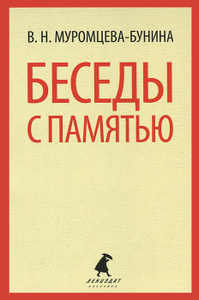 | Книга "Беседы с памятью" В. Н. Муромцева-Бунина - купить книгу ISBN 978-5-4453-0688-7 с доставкой по почте в интернет-магазине Ozon.ru |
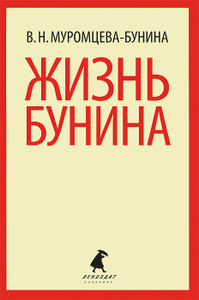 | Книга "Жизнь Бунина" В. Н. Муромцева-Бунина - купить книгу ISBN 978-5-4453-0577-4 с доставкой по почте в интернет-магазине Ozon.ru |




.jpg)













